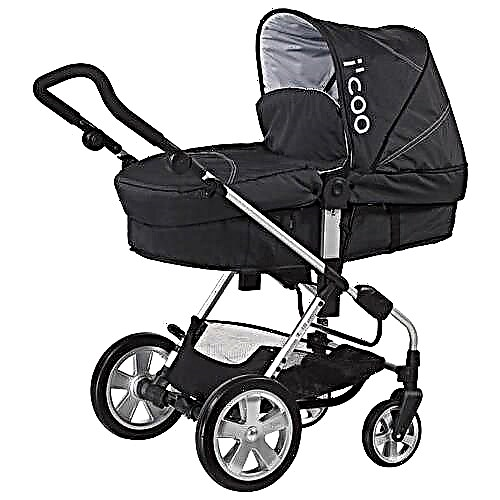
The postpartum period is not easy for most women. At this time, they have many worries and worries, therefore, anxiety often increases and sleep is disturbed, mood swings and emotional outbursts are observed. To relieve nervous tension and eliminate anxiety, the doctor may prescribe "Glycine" to the nursing mother. This remedy has a mild sedative effect and increases the body's resistance to stress factors.

What is this drug?
Glycine is one of the amino acids that are formed in the human body, so it belongs to the nonessential. We also get this amino acid from various foods, for example, from beef, nuts, oatmeal or liver. The name of this amino acid gave the name to the drug "Glycine", as it is its main component.
The medication is represented by tablets, which have a sweet taste, a white tint and a cylindrical flat shape. Each tablet contains 100 mg of glycine, to which a small amount of magnesium stearate and methylcellulose is added to make the preparation firm.
"Glycine" is sold without a prescription in packs of 10, 20 or 50 tablets, stored at home at temperatures below +25 degrees, and its shelf life is 3 years.


The drug must be dissolved in the mouth by placing the tablet under the tongue or on the cheek. With this method of application, glycine will penetrate into the blood and be transferred to the cells of the brain, where it will affect the processes of excitation (reduce them) and inhibition (strengthen them).
Thanks to this action, the functioning of the central nervous system is normalized, and the patient's psychoemotional state improves. In addition, taking "Glycine" reduces the harmful effects of drugs that can depress the brain.
Is it used when breastfeeding a baby?
There is no prohibition in the annotation for pills for women who are feeding a baby. Such a drug should not be taken only in case of intolerance to its ingredients. In other cases, "Glycine" is not contraindicated, because it is of natural origin, it acts on the woman's body quite mildly, and the concentration of glycine after taking the tablets in breast milk is so small that it is unable to affect the condition of the baby.
The tablets are often used as a natural sedative to help normalize sleep. "Glycine" is recommended to protect the nervous system from severe stress, which a woman is very susceptible to in the first months after childbirth... The drug is in demand if a nursing mother has severe fatigue, decreased appetite, nervousness, weakness, intermittent and disturbed sleep.
Taking pills helps to avoid fatigue, normalizes brain function, and improves the rhythm of sleep and rest.

Such a remedy will be a good prevention of neurosis and depression, which often appear in new mothers. Thanks to "Glycine", a woman will be calmer and will be able to adequately respond to various difficulties associated with caring for a baby. Her performance will increase, her mood will improve and anxiety will decrease.
But, despite the harmlessness of this medication for crumbs, a doctor's consultation is required before using "Glycine" during breastfeeding. The specialist will select the optimal regimen and will monitor the condition of the mother and baby in order to cancel the remedy in time or supplement the treatment with other drugs.
Also, before taking any medication it is worth trying to influence the state of the nervous system with non-drug means and try to eliminate the cause of the nervous overstrain... For example, a nursing mother can drink herbal tea with a calming effect, listen to classical music, take a bath with valerian and lavender, do a relaxing massage, shift some of the worries onto her spouse and relax.

Instructions for use in breastfeeding
The dosage of "Glycine" for a nursing mother should be determined by a doctor, but most often a single dose is one tablet. You need to dissolve the medicine under the tongue 2-3 times during the day. The drug should not be swallowed, since with prolonged resorption, glycine will be absorbed into the capillaries under the tongue and get to the brain cells, and if swallowed, it will be included in the digestive process and all effects on the nervous system will be absent. However, it is permissible to crush the tablet into powder and dissolve in such a crushed form.
It is known that single use of "Glycine" is ineffective, therefore, the drug is usually prescribed as a course. Its duration can be from one week to one month, depending on the condition of the woman and the response of her body to treatment. If a second course is required, then it is usually prescribed after a month's break.

Can it hurt?
Although in rare cases, but "Glycine" can cause an allergic reaction. It usually presents with a rash or itching, but it also occurs as other allergy symptoms. Note that the reaction is possible in both the mother and the baby. For any manifestations of hypersensitivity, taking the tablets should be discarded.
Taking "Glycine" is also not recommended for nursing mothers with low blood pressure.
If a woman nevertheless decides to take pills with hypotension, she should monitor her blood pressure daily and stop taking the drug with a significant decrease.

The harmful effect of the drug is possible even if its dosage is exceeded. If you take many pills at the same time, you may experience dizziness, nausea, and other negative symptoms. Also at high doses, the baby can react to "Glycine" with various disorders... Sometimes the child becomes lethargic and drowsy, refuses to breast, and in some cases, on the contrary, does not sleep well, cries for a long time and behaves agitated. In such situations, you need to see a doctor.
Reviews
According to doctors, "Glycine" helps well with anxiety, excitement and other mental disorders, which are often found in nursing mothers and can be transmitted to babies. They confirm that this drug is harmless to the baby and can be taken while breastfeeding, but only after the appointment of a specialist. Taking such pills on your own without consulting a doctor is not recommended.
According to the reviews of lactating women, "Glycine" has an average efficiency. This medicine does not cope if the stress is strong, but its effect is positive in case of increased anxiety, worsening sleep, depressed mood... This remedy is generally well tolerated, without affecting lactation and the condition of the infant. The pluses of "Glycine" include the fact that the drug is affordable - on average, you need to pay 30 rubles for 50 tablets.


What to replace?
Buying "Glycine" in a pharmacy, you can come across analogues that have a similar name. Usually it additionally contains a word or abbreviation indicating the manufacturer, for example, "Glycine-Bio" or "Glycine-MHFP"... These drugs also contain glycine in a dosage of 100 mg and can be used for the same indications. There is also "Glycine forte" with a higher content of active substance - 250 mg in each tablet. Its use is permitted for breastfeeding, but must be monitored by a doctor.
In addition to the medicine with the prefix "forte", in pharmacies you can also see a dietary supplement called "Glycine Forte Evalar". In addition to 250 mg of glycine, such tablets contain three B vitamins (B1, B6 and B12), which enhances the effect on the brain. The manufacturer does not recommend taking them while breastfeeding.
Replacing "Glycine" with nervous overload and anxiety can be tablets "Valerian"... Such a herbal remedy has a calming and relaxing effect, therefore it is recommended for insomnia, nervousness, depression, chronic fatigue and severe stress. But, like all herbal preparations, Valerian can provoke allergies and other side symptoms, so taking such a medicine while breastfeeding should be agreed with your doctor.


More about the drug "Glycine" - the next video.



